Investments
I don't consider myself an active angel investor, I don't have time to do the actual work of meeting founders, reviewing decks, hypothesising about trends, or wearing Patagonia. The way I end up involved is that either I, or a friend, learn about a new product, I start using it, I contact the founder via their Intercom messenger, and start a conversation about the product. Occasionally there's something useful I can share from my experience scaling Intercom and as a result of this sometimes I am invited into the next round raised for a very small check. I have no idea if any of these will work out but I do know that I learn a lot from the connections made.

I believe that most SaaS products share similar features. When those features are 1) important 2) hard to do well and 3) not a significant opportunity to differentiate yourself, there is a market opportunity to outsource it to an expert. Algolia offers Search, as a Service.

It is way too hard to send someone a nice gift over the internet. &Open solves that with a transactional and programmable interface to send your customers, prospects, friends and family really nice things. Great Irish company.

Arena lets every website have live commentary from all visitors on the website. Initially you might think it looks like Intercom, but it’s actually an audience builder, not a customer communication platform. If, for example, you wanted to let all your readers chat to each other live on your site, this is the product for you.
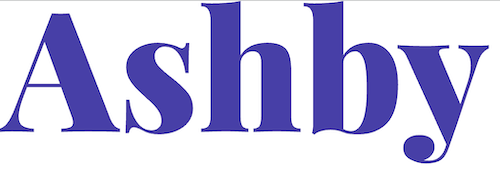
Ashby is the next generation recruiting platform for companies who have outgrown their ATS and need to go with something that solves the problems of very large software companies. I’ve yet to use it, but genuinely everyone who has isn’t turning back any time soon.

Running a large frontline workforce (e.g. Support, Sales, etc.) requires an ability to plan, predict, and react to changes in workload (e.g. a spike in inbound) or a change in resources (e.g. illnesses, vacation, etc. ). That’s basically what Assembled does, it’s great software that lets you see around corners.

If you’ve ever attempted a virtual workshop, you’ll know exactly how shit they are. Multiple persistent Zoom calls, shared Figma & Miro files pasted back & forth, people losing links and attending the wrong breakouts. The whole experience is cheap & shitty. Butter is the solutionm, built by people who run workshops for people who attend them. I’m optimistic.
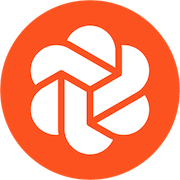
Chromatic is a tool that automates UI feedback and visual testing. Developer time is one of the scarcest asset classes of this century, and this makes more of it available.

It took me 4-5 efforts to click with Coda. At first, I thought it was a spreadsheet, then a Quip-esque hybrid product, then a DabbleDB (RIP) type product, then it finally clicked that this was a new way to connect information in your business. It’s incredibly powerful, and has a great team and some good friends work there.

I met Jaime at WebSummit and he walked me through the Codacy plan for code analysis. He was impressive, as was the product, and the progress. Codacy behaves like the know-it-all engineer running around in the background tell people to fix their flakey code, and it costs less that an engineer’s salary!
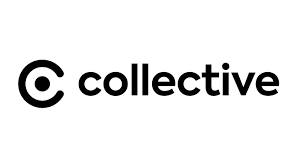
Freelance work has been a invisible rocketship over the past decade. Of late, freelancers have been grouping together (e.g. designer + front-end + back-end developer team up) to tackle end-to-end delivery of larger projects. I think this will be future of so much web work. Collective makes it possible.

Consider was my 3rd email investment. Email is hard. Stephen, Ben, Bob, and team did a hell of a job re-imagining email and adding ‘new-to-email’ features for the first time since Gmail. Ultimately it didn’t work out, but it was a great product achievement.

Communities are an important competitive asset for companies, unlike features they can’t be copied & pasted easily. Most companies struggle to grow a community because they’re trying to connect a hodge podge of Twitter, Slack, Discord, Webinars, and more. Commsor is the tool that connects everything and shows you your community.

There will be a lot of startups build that use computer vision to solve domain specific problems. These startups have enough challenges to worry about without building their own labelling solution for their training data or using humans to do labelling for them. Cord does all this, and a bit more, and it’s early days for them.

The very second you hire someone you don’t personally know, you start to wonder about how to manage their morale and engagement. The second that person grows a team, you start to think about company-wide engagement. Rather than rely on 3rd party anonymous review sites, Culture Amp lets you survey your company periodically and learn how everyone feels. It’s a great product.

Product teams don’t build their own mapping features, payment systems, search engines, or video calling. Instead, they use Google Maps, Stripe, Algolia, and now Daily. I suspect future communication products will all be expected to have a video chat feature and in that world, Daily will power everyone’s calls. Great team, great product.

A non-custodial wallet paired with a modern bank, built by a team who know a lot about all these things. That’s about all I can say right now, probably nothing.

Not to be confused with the previous, Demodesk is changing the nature of the sales call itself and how users interact with the demos during it. They’ve built some very cool technology for co-browsing, sharing playbooks, notes, and more. It’s a genuinely fresh experience and Veronika is a very impressive CEO.

Sales demos are incredibly important. Unfortunately most of them tend to use dummy data, and Acme Inc. type fictional companies, making it really hard for prospects to build a bridge between what they’re seeing, and their own business. This hurts win rates. Demostack fixes this letting you edit your own UI, to make the demo 100% personalised to every customer.
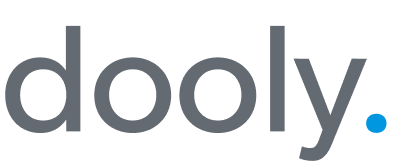
Salesforce’s UI is so challenging that there are multiple billion dollar companies built purely so people don’t have to use it. Dooly strips away everything Sales teams don’t need and leaves them with a clean clear and efficient UI focussed on what they do need. It makes your sales team better.

Product Led Growth is the new name for Bottoms Up Adoption it seems, and what Alex and the team noticed was that it’s woefully under-developed in terms of tooling. What customer is expanding, who is ready to go annual, who isn’t getting value are all key questions every product-led company asks itself, and rather than homegrow a mish mash of Tableau junkboards, Endgame does the heavy lifting for you.

Equals is another ex-Intercomrade company, formed by 2 good friends Ben & Bobby, building a modern spreadsheet. Unlike Coda/Airtable, Equals are tackling the FP+A usecase of spreadsheets. They have 2 strong differetitors that will seem obvious once you see them. That’s all I’ll say.

Ethyca offers privacy engineering as a service. I believe that privacy will be a huge part of the future (hence Evervault above), and I believe that the current solution of hiring a load of consultants with PDFs and clipboards is pure optics and ineffective. Ethyca isn’t that. Ethyca lets you encode your data privacy policy and ensures it’s followed.

Shane Curran is a smart guy tackling a big, hard, and (importantly) very boring problem. Evervault is Secure Data Storage and Authentication as a Service for software companies.

Compensation philosophy, that is the principles and processes behind who gets paid what when and why, is frankly a hot mess in every startup I’ve ever seen. At some stage this gets fixed by a HR team armed with “Big Spreadsheets”, and as usual, when you’re seeing people writing and copy-pasting advanced Excel formulae, you’re looking at a billion dollar opportunity. That’s Figure, it’s gonna be great.

Filigran helps companies get & stay secure. I continue to believe that digital security will be a straightforwardedly massive business for decades to come. Everything is moving online, and needs to be kept safe.

Developer tools and API-as-a-service are white hot markets. Both depend upon keeping a great community of developers, but where the is the software for growing a developer community? The answer is Hashnode. Decentralized developer blogging, documentation, and discussion, all in one.

I love cocktails, but I hate how potent they can be. Haus is alcohol for the modern drinker, it has all the traits of spirits you love, but it’s light, refreshing, naturally made, and low alcohol. It’s a better way to drink.

As someone who has been to a fair share of conferences, it always puzzled me why the online experience was so shit. It puzzled Johnny too, who went and built Hopin. Then Corona happened. Johnny’s been busy…

HR software is still stuck in 1.0 era of SaaS. Employee records moved from filing cabinets to desktop apps and then in SaaS 1.0 they moved to the web. But no one has rebuilt a HR system that is born of the internet where UX, collaboration, APIs, integrations are all baked in, not bolted on. No one, that is, until Giovanni and his team at Humaans.

Huckleberry can deliver small business insurance in America in less than 5 minutes with a very slick & modern experience. While I’m not a target customer, which is rare for me, what stands out is the clarity of the problem and the quality of the execution.

The future is multiplayer. Easy & effective collaboration is a signature feature of every decent web app post 2015. But, shit it’s hard to do well, and it’s rarely a way you’d distinguish yourself. So you can use InScreen, they’ll make your products collaborative in really nice ways. And you can go back to building.

Inscribe takes ~50% of the pain and manual work of fraud detection away for good. Companies like Ramp and Viva Finance use them. And that 50% is growing.

Inspira helps people attend the university they want to attend so they can have the future they want to have. They’re an experienced global team who help people through the admissions process, their software matches mentors with applicants to ensure that everyone can get an outcome they’re hoping for.

As businesses move online, the challenges of identity verification have moved online too. Financial institutions, Gaming, Education, Rentals, all need to know for sure who you are. If you’re trying to build the next Airbnb the last thing you want to spend time is software doing digital document verification or video calls. That’s what Invoid is. And they’re doing great.

Jeeves manages expenses for businesses through a really clean UI, it’s built by entrepreneurs and built for entrepreneurs. If you’ve ever ran a business and had to deal with an old-world bank, this product will appeal to you.

June is an ex-Intercom led product analytics startup aiming to serve product managers directly. Imagine Mixpanel, but very focussed on B2B SaaS product managers.
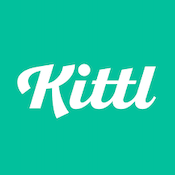
What Figma was to Adobe XD, Kittl is to Adobe Illustrator. A beautiful product and marketplace for finding great design work.

An incredibly designed product to help creatives build moodboards using a combination of A.I., extensive asset search, and recomposition. Used by everyone from brand designers to movie directors, it’s a very cool product.
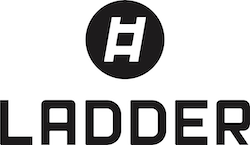
Unless most fitness tech, Ladder is actually designed for people who are serious about fitness. It’s not gonna nudge or nag, it assumes you’re all in on getting fit. It works, it has thousands of evangelists, and it’s growing like wildfire.

Levity lets you train AI to work on text, images, documents, and delivers an if this, then that, no code interface for workflow logic. For example automatically tag images based on what they show, automatically reply to customers based on sentiment, etc.

I know what you’re thinking, and this isn’t a typo. Much as websites need to be localised, so do people. Every year millions of people move around the world to accept new jobs, and you’ll be shocked to hear that there’s not a lot of good software to automate all the messiness of the process. Visa applications, employment contracts, helping new employees find their way around a city, all of these things are hard. Localyze makes them easy.

Lokalise helps companies localise. There comes a point for every startup where a strong vector of ROI positive growth is simply “make our product available to people who don’t speak our language”. But the tooling to support this world is bloated and nearly always a mish mash of consultingware with some dodgy UI in front. Lokalise takes a very modern and holistic look at the problem, and the folks have built a strong and impressive product and business out of it.
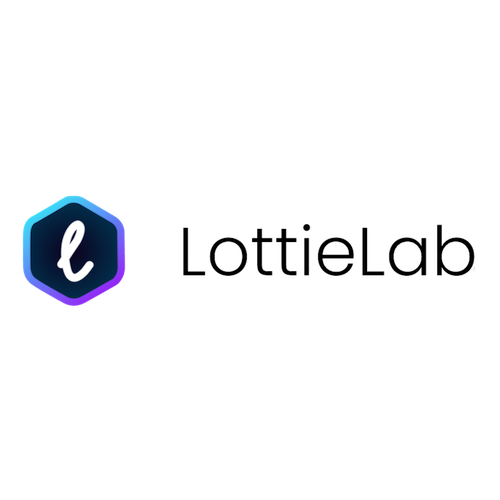
Another in the “tools for developers” category, I believe that while animations are a huge part of the future of the internet, they’re currently only really available to the Apples/Googles of the world who can afford to invest immense time in them. Lottie Lab offers a easy way to create and then collaborate on great animations, using the Lottie framework.

Madkudu is lead scoring on steroids. They have a great product, and integrate with all the right players in the space, obviously including Intercom.

I’m almost tempted to leave Magical out because their product is incredible, but their website doesn’t (yet) make it clear how incredible it is. It starts off as a free version of text-expander, but where it goes from there is very impressive.

Every government in the world offers incentives, tax credits, refunds, and other schemes to companies, especially startups. That’s great. Claiming them back sadly often involves fax machines, PDFs, Priests, phone-calls, random deadlines and lots more. Not great. That’s where Mainstreet comes in, they turn all this work work in a beautifully simple & integrated app.
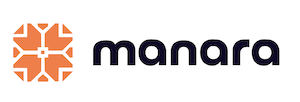
Manara are on a mission to help undiscovered engineers in the middle east find their way to top tier companies. Here’s one example, in Palestine 83% of women CS graduates are unemployed, but Manara changes that. Read Dalia’s story to see the type of progress Manara emables. Inspirational.
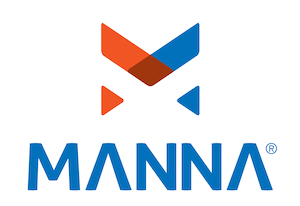
Manna is a very ambitious startup aiming to deliver consumer goods (initially food, medicine) via drones. Yes, drones. I’ve seen some really impressive demos, so let’s see what happens.

I spoke to Mikael quite a few times in the earlier days of ManyChat and what he has built since is incredible. Both Intercom & ManyChat believe that messaging is the future of online communication, so we share a lot of the same ideas for the future. ManyChat offers Messenger marketing via FB, and do via an incredibly simple UI.

Miro wasn’t the first company to attempt the “why can’t whiteboards go online” problem, but with Miro he has built an incredibly complete solution. As work gets more distributed, with or with Coronavirus, the sketchy/chatty/brainstormy interaction will need a software home. Slack isn’t it, nor is email or Basecamp, or anything that doesn’t let you draw, write, and talk in real time with colleagues. Miro is that home.

Another email-ish investment, MixMax offer the definitive plug-ins for Gmail. Many many EAs, SDRS, AEs I know are paying customers. Ultimately I think of MixMax as a platform for email shortcuts, and their target market are ‘people who do repetitive things by email’. It’s a big market.

The folks at Frontline introduced me to Colm & co. in the very early days. The problem space (design systems) is, to me, still maturing but what blew me away was the sheer pace of execution. I find it hard to invest when a company is shipping slowly, and I find it hard not to when they’re blowing me away with their output. A startup is a business designed to grow fast, after all.

In a world where all conversations are moving to messaging, then all communication is written. There will be many products and companies that will depend on their ability to extract insight from text. That’s what MonkeyLearn does.

One of my rare web3 investments Moonpay are making genuinely easy to buy & sell Cryptocurrencies and NFTs. What, you didn’t think you’d get through this page without hearing about NFTs did you?

Motion is a creative hub for folks who work on advertising that has to perform. What Jira is to developers, Motion is to Demand Gen folk.
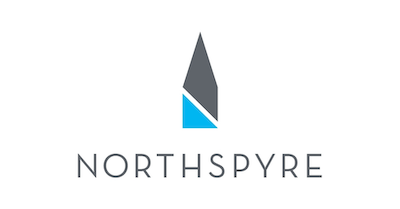
I love SaaS compaines that tackle boring spaces no college drop out is ever gonna notice. In related news, Northspyre is a platform for real estate teams who need to manage projects effectively from inital planning through to launch. William is a really impresssive CEO and I’m excited for their future.

Notion is an operating system for work. Potentially for life. What’s most unique about Notion is that they do everything (Docs, Wiki, Database, Notes, etc.) but you can’t easily see the trade-off because they’ve done everything well. When you find out how few engineers they have, you’ll be shocked.

Orreco are an Irish company revolutionizing how top athletes all over the world can use bio-analytics and software platforms to monitor their performance, probability of injury, and ultimately their value. Their customers include players in the EPL, NFL, NHL, Olympics, and more.

One of my many investments in HR tech, Pando is a product built for career conversations, career progression, and generally making the usual “performance chat” be something that both parties benefit from, and importantly one that compounds over your career.
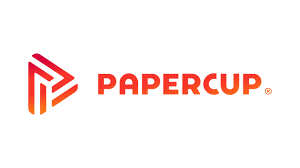
PaperCup is magical and it’s part of a vision for the future of audio. PaperCup translates audio (with sentiment) into other languages and produces very very watchable content. Sky News uses it, the BBC use it, it works.
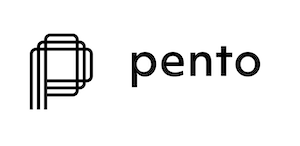
Payroll is a horrible experience for all involved, as a company scales it takes days to run and involves full time people to process manually what feels like it should be entirely automated. It’s a jumbled mess of spreadsheets and emails and questions from staff. Unless you use Pento.

Pipe gives SaaS companies access to their future revenue streams. This allows startups to postpone fundraising until they have the metrics they want, and lets businesses turn ROI-positive marketing spend into perpetual motion machines (until they dry up).

Kostya (ex-Intercom) is building an online community for fashion professionals and is seeing great traction.

The “build tools for PMs” movement started around 2014/2015 and ProductBoard is clearly the stand out, ahem, product, in the area. I’ve known Hubert since 2014 when we met at a conference, and got to know ProductBoard through their Intercom integration. It’s doing great!

Qase helps product developers manage all their tests, manual and automated, in one place. And in that one place you can do quite useful things with them (e.g. bundle specific test suites together, rank by severity, etc.)

Reflect is the app I use for storing all non-work notes, e.g. things I think, things I try to remember, etc. It’s a “Tool for Thought” as the meme goes, I find to be an incredible product.

Imagine a bank designed for a small and growing business. That’s exactly what Relay is, every feature you wish you had in your online banking app is in Relay, and if not it’s on their roadmap.

We have all had that pain where you were looking at something on your screen a few days ago and now have no clue where it was. There’s no way to search “all the shit that’s ever appeared on my screen”, except now there is. You can literally rewind.
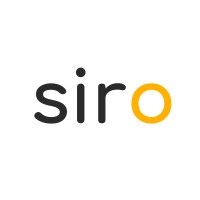
Siro is sales training for real world sales reps made possible by fantastic use of AI. You could call it Gong for the real world, but Joe & Jake would correct you a bunch. It’s more right than wrong imho.

Sequence are solving financial operations for tech startups. This is a nightmare problem they’re aiming to solve and that’s all I can say for now :)

Spotahome is a global marketplace for apartment renting & apartment management. While often compared with Airbnb it’s more specific, it’s for longer term leases, well vetted properties, and makes moving to a new city a lot easier.

Accessibility is really important and badly tooled. Stark is the solution. Half a million developers have used Stark to make their products more accessible, and it integrates right into your design tools (Figma, Adobe, Sketch, Chrome, you name it). Cat + team know the space very well, and their progress is so impressive.

I believe in podcasts. I believe the rise of the famous podcaster will continue. I also believe in Andrew from Metalab, so when he says he’s building a new product for podcasters, I’m very much in. Supercast launched in very early 2020 and I expect big things.

My belief in “speed as a differentiator” goes something like this. There’s tool time and task time. Tool time is the annoying clicking and navigating necessary to use the tool, for example, working out how to write a project update and who to send it to. Task time is the thinking required to get the job done, for example, what is the actual project update. Superhuman has shrunk the small-but-hourly tool time of email to ~zero. And they’ve done it with a great product. Incredible.

Our future homes will be full of “internet of things” shit, and let’s be honest, most of it won’t work. Sweepr will offer you a single starting for all “something isn’t working in my house” queries. Incredibly experienced team, re-tapping a familiar space. I’m excited about their prospects.

Synthesia is magical. It combined with PaperCup (see other investment) really truly make me excited for the future of audio. The best way to understand Synthesia is by watching their fantastic advert
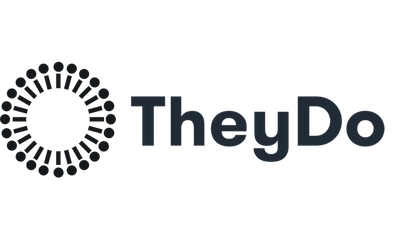
Journey Management is very much the new hot shit as it relates to building a B2B SaaS, especially with the new dawn of PLG etc. Having a single place that documents how the hell sign-ups actually work, and what’s supposed to happen when is really important. And that’s what TheyDo.
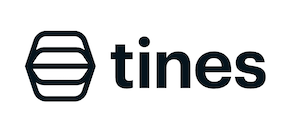
Process automation 1.0 was a hacked version of screenscrapers, dodgy scripts, flakey tools attempting to mimic mouse movements and probably some Perl too. Tines is Process Automation 2.0. Deep robust integrations connecting tools in reliable and durable ways. You don’t need a weatherman to know which way the wind blows.
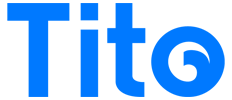
I worked with Paul over a decade ago and found him to be an incredible auteur. Tito is a canvas he shares with his co-founder Doc and others. It’s a beautiful ticketing platform, polished to a point of near stupidity. Vito is their online community product, also about to catch fire.

There’s a whole category of products where the cost of the packaging is comparable to the cost of its contents. Thing Gas canister, Beer Kegs, etc. Losing a keg after selling the beer means you’ve actually lost money on the deal. So it’s important to track these things. That’s what Tracworx do. AirTags for Big businesses basically.
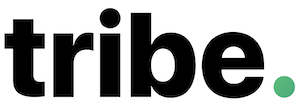
Tribe is a platform for businesses to build their own commmunities, and integrate them into their products. Owning a strong community is a great differentiator for B2B products, and yet the software that powers this spaces is, frankly, dogshit. And then there’s Tribe. Tribe is nice.
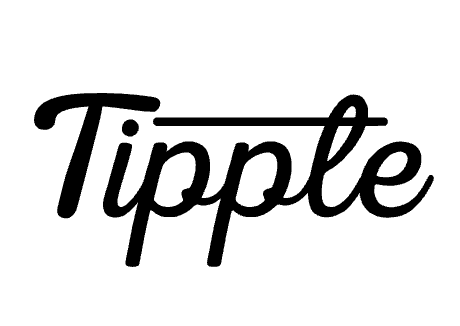
Tipple is one of my favourite types of start-ups, one where founders go back to solve the biggest problem in their previous company. Eoin made a delicious Irish craft Gin (Mór), but the logistics of selling it around the world were awful. Tipple solves it.

When ex-Intercomrade Jin said she had a startup idea she had expertise in, in a relatively ‘boring’ vertical, and it was an area incredibly personal to her, I was excited to invest. TrueNorth is technology to help truckers earn more, more reliably, and have better lives.

Vowel is a dramatically superior tool for doing work meetings online. Sure everyone is now boasting transcripts (mistakenly imho), Vowel has beautiful interactions, a great agenda-gathering mechanism, and a great UI for capturing takeaways during the meeting. In short their focus is “better meetings”, not just here’s some features missing from Google Meet.
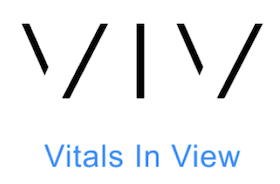
Viv is a wearable that lets you monitor blood glucose levels so you can lose weight and gain energy. Folks in their cohort are showing mindblowing results. I’m excited.
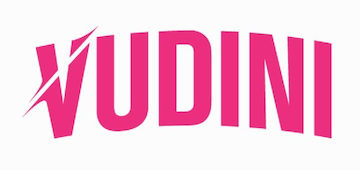
Did you ever think about SEO for YouTube? Course you didn’t. Neither did I. I bet you’re thinking about it now right? How do you SEO video? Good question. Ricky knows, and that’s why he started Vudini, and if you have videos and want more views, then check out Vudini.

Moving business data around is an absolute nightmare, and getting the right data into the right tools is full on inception style nightmare in a nightmare inside a broken data warehouse. Weld makes it easy to get anything from anywhere to anywhere for a large number of GTM tools, including all the ones you want.

My very first investment, Workable is just great recruiting software. If you’re a start-up needing to build your “We’re hiring” page, this is the product for you.

Internal communications are really important. It’s funny how often businesses will sweat the details over an email to 800 customers, but YOLO an email or Slack to 800 employees, not really understanding the cost of confusion etc. Workshop is a complete platform for managing all internal broadcasts in a company.

If you’re not a tech start-up, however, and need to employ folks in the more human heavy sectors (restaurants, drivers, delivery, retail, hospitality), then Workstream offers a fantastic platform for efficient & effective scaled hiring. Plus, their founder is also called Desmond.

Someone once flattered me by saying “forget everything you know about ERP”, as if I had a clue what it was. Thanks to Xentral I’ve quickly learned. Rather than bore you with the details, you can work it out yourself. SAP, at time of writing is a $140B business. Here’s what SAP software looks like. That’s what Xentral is going after.



